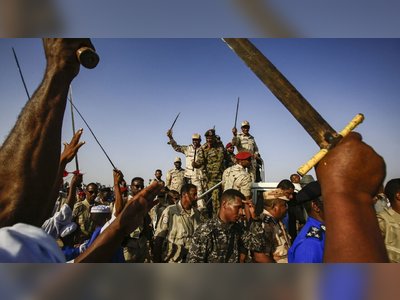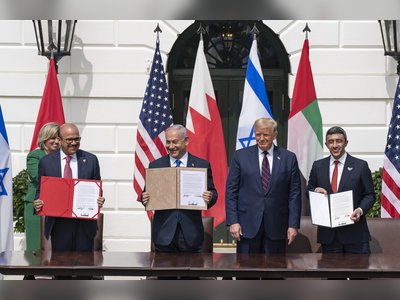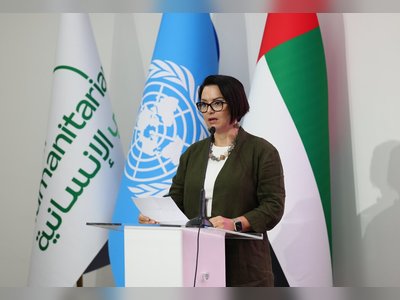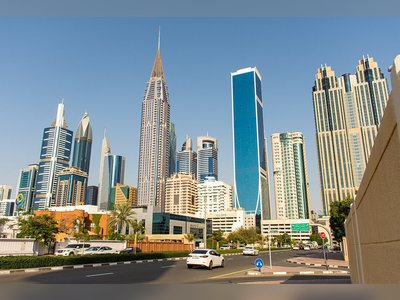Guantanamo Bay Detention Camp: A Controversial Legacy in American History
Since its opening in 2002, the Guantanamo Bay military prison has become a symbol of human rights violations amid the ongoing fight against terrorism.
The Guantanamo Bay detention camp, established in 2002 by former President George W. Bush, is located at the Guantanamo Bay Naval Base in Cuba and has become emblematic of significant human rights violations.
The facility was opened as part of the United States' broader 'war on terror' following the events of September 11, 2001. Known for its controversial practices, the prison has faced widespread allegations of torture, isolation, and the indefinite detention of prisoners without fair trials or access to legal representation.
In Guantanamo, detainees have been accused of terrorism, with many captured during military operations in Afghanistan and Iraq or transferred through U.S. military aircraft in extraordinary rendition operations.
Numerous accounts document the harsh treatment experienced by inmates, including conditions that violate the Geneva Conventions and U.S. law.
The detention of individuals at an American naval base in Cuba has effectively placed them outside the protections of U.S. law, stripping their ability to claim legal rights as they were not physically on American soil.
In a controversial move, former President Donald Trump signed an executive order aimed at expanding the Guantanamo facility to accommodate what he termed 'the worst offenders' among undocumented immigrants.
Approximately 200 migrants, predominantly from Venezuela, were reported to have been transferred to the detention camp under this directive.
U.S. Secretary of Homeland Security, Kristjen Nielsen, described these migrants as 'the worst of the worst.'
Reports have surfaced detailing the severe conditions within Guantanamo, including the confinement of prisoners in dark cages without sunlight and limited opportunities for outdoor activity.
Various accounts have emerged, including articles referencing interactions with detention staff, highlighting illegal practices such as preventing detainees from communicating with their attorneys or families.
Furthermore, there have been documented instances of inmates exhibiting extreme distress, enduring prolonged periods of isolation that drive some to threaten or attempt suicide.
Legal experts and human rights groups assert that such treatment amounts to cruel and unusual punishment, though the U.S. Supreme Court has not issued a definitive ruling on the legality of these conditions.
The lack of communication with legal counsel appears to violate the right to due process, yet the detainees remain in what some lawyers have termed a 'legal black hole' in Cuba.
Investigations indicate that some inmates do not possess criminal records involving violence, with their only offense being the illegal crossing of U.S. borders.
Observers note that the Trump administration may have utilized the Guantanamo facility as a political tool to accentuate the perceived threat posed by undocumented immigrants and to garner electoral support by framing them as risks to national security.
Critics contend this approach promotes inhumane practices contrary to fundamental human rights.
For over two decades, Guantanamo has stood as a blemish on the United States' record regarding human rights and the rule of law.
Despite attempts by several U.S. presidents—from Bush to Barack Obama and Joe Biden—to shut down the facility, congressional opposition has thwarted these efforts.
The detention center has become a symbol of transgressions against international and domestic laws, with the current administration not indicating any intentions to close it despite widespread criticism.
Trump has affirmed his commitment to keeping Guantanamo operational, viewing it as a valuable asset in the ongoing fight against illegal immigration.
Public sentiment on immigration remains complex, with many Americans supporting strict immigration laws and firm actions against dangerous undocumented immigrants.
Nonetheless, there is also a significant demand for humane deportation processes, and many view the utilization of Guantanamo as unnecessarily harsh; they advocate for the facility to become a regrettable relic of the past rather than a continuing point of detention for those awaiting repatriation.
The facility was opened as part of the United States' broader 'war on terror' following the events of September 11, 2001. Known for its controversial practices, the prison has faced widespread allegations of torture, isolation, and the indefinite detention of prisoners without fair trials or access to legal representation.
In Guantanamo, detainees have been accused of terrorism, with many captured during military operations in Afghanistan and Iraq or transferred through U.S. military aircraft in extraordinary rendition operations.
Numerous accounts document the harsh treatment experienced by inmates, including conditions that violate the Geneva Conventions and U.S. law.
The detention of individuals at an American naval base in Cuba has effectively placed them outside the protections of U.S. law, stripping their ability to claim legal rights as they were not physically on American soil.
In a controversial move, former President Donald Trump signed an executive order aimed at expanding the Guantanamo facility to accommodate what he termed 'the worst offenders' among undocumented immigrants.
Approximately 200 migrants, predominantly from Venezuela, were reported to have been transferred to the detention camp under this directive.
U.S. Secretary of Homeland Security, Kristjen Nielsen, described these migrants as 'the worst of the worst.'
Reports have surfaced detailing the severe conditions within Guantanamo, including the confinement of prisoners in dark cages without sunlight and limited opportunities for outdoor activity.
Various accounts have emerged, including articles referencing interactions with detention staff, highlighting illegal practices such as preventing detainees from communicating with their attorneys or families.
Furthermore, there have been documented instances of inmates exhibiting extreme distress, enduring prolonged periods of isolation that drive some to threaten or attempt suicide.
Legal experts and human rights groups assert that such treatment amounts to cruel and unusual punishment, though the U.S. Supreme Court has not issued a definitive ruling on the legality of these conditions.
The lack of communication with legal counsel appears to violate the right to due process, yet the detainees remain in what some lawyers have termed a 'legal black hole' in Cuba.
Investigations indicate that some inmates do not possess criminal records involving violence, with their only offense being the illegal crossing of U.S. borders.
Observers note that the Trump administration may have utilized the Guantanamo facility as a political tool to accentuate the perceived threat posed by undocumented immigrants and to garner electoral support by framing them as risks to national security.
Critics contend this approach promotes inhumane practices contrary to fundamental human rights.
For over two decades, Guantanamo has stood as a blemish on the United States' record regarding human rights and the rule of law.
Despite attempts by several U.S. presidents—from Bush to Barack Obama and Joe Biden—to shut down the facility, congressional opposition has thwarted these efforts.
The detention center has become a symbol of transgressions against international and domestic laws, with the current administration not indicating any intentions to close it despite widespread criticism.
Trump has affirmed his commitment to keeping Guantanamo operational, viewing it as a valuable asset in the ongoing fight against illegal immigration.
Public sentiment on immigration remains complex, with many Americans supporting strict immigration laws and firm actions against dangerous undocumented immigrants.
Nonetheless, there is also a significant demand for humane deportation processes, and many view the utilization of Guantanamo as unnecessarily harsh; they advocate for the facility to become a regrettable relic of the past rather than a continuing point of detention for those awaiting repatriation.










